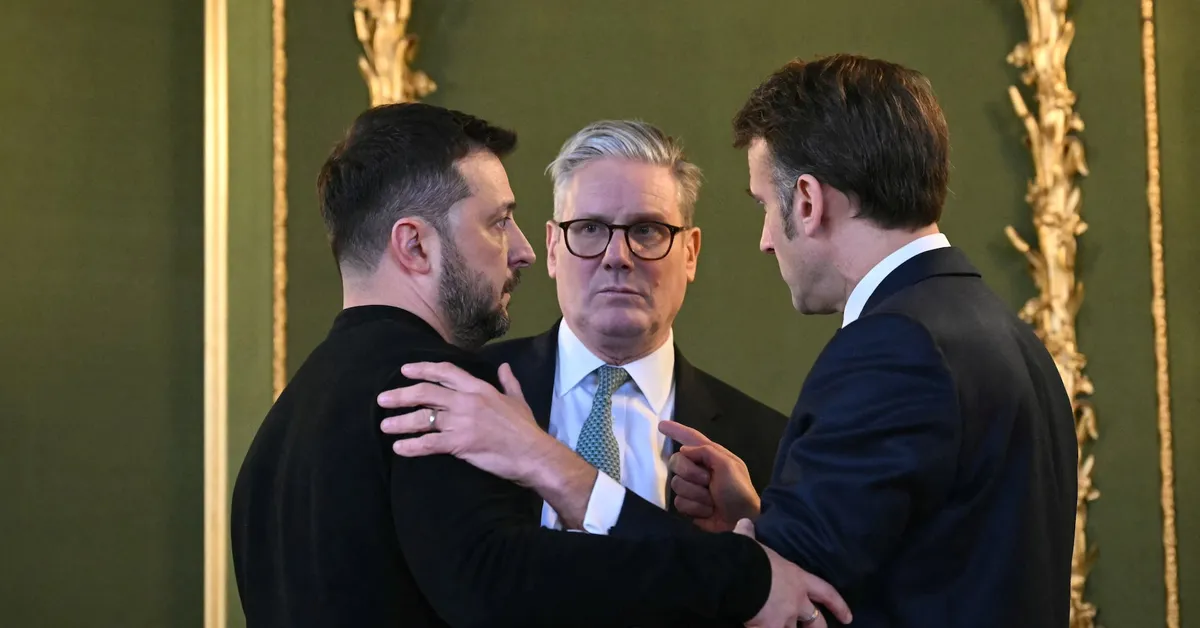
On March 3, 2023, France and Britain announced a proposal for a partial one-month truce between Russia and Ukraine. This truce aims to focus on air, sea, and energy infrastructure attacks, while deliberately excluding ground fighting. French President Emmanuel Macron and French Foreign Minister Jean-Noel Barrot emphasized this initiative amid heightened European diplomatic efforts to reinforce support for Ukraine.
The proposal comes in the wake of a tense meeting between Ukrainian President Volodymyr Zelenskiy and U.S. President Donald Trump at the White House, which underscored the challenges in achieving a resolution to the ongoing conflict. According to Barrot, the proposed truce would serve as a litmus test to assess whether Russian President Vladimir Putin is genuinely committed to peace negotiations. Should the truce be respected, it could pave the way for serious peace talks to commence.
Under the Anglo-French proposal, European ground troops would only be deployed to Ukraine at a later stage. Macron clarified in an interview with Le Figaro that no European troops would be sent to Ukrainian territory in the immediate future. He stated, “The question is how we use this time to try to obtain a truce, with negotiations that will take several weeks, and then, once peace is signed, a troop deployment.”
While Macron's proposal holds promise, he did not provide specific details on how the monitoring of air, sea, and energy infrastructure would be conducted. A European diplomat suggested that effective monitoring would require the involvement of NATO or NATO command, along with advanced defense systems such as Patriot systems and long-range missiles, which Ukraine currently lacks. Negotiating with Russia to prevent large-scale attacks would also be critical to the success of the truce.
In response to the proposal, the Kremlin rejected the idea of deploying Western troops to Ukraine. They noted that the recent confrontation between Trump and Zelenskiy highlighted the complexities of reaching a settlement in the conflict. President Zelenskiy, when questioned about Macron's plan, indicated he was aware of the discussions but did not provide further details.
UK Armed Forces Minister Luke Pollard refrained from confirming the specifics of Macron and Barrot’s ideas, stating, “That’s not a plan that we currently recognize.” He acknowledged that various options are being explored privately among the UK, France, and their allies, but emphasized the need for discretion regarding the discussions.
British Prime Minister Keir Starmer announced that European leaders have agreed to develop a Ukraine peace plan to present to the United States. While details remain under wraps, this initiative reflects a concerted effort among European nations to address the crisis.
Meanwhile, discussions among parties forming Germany’s new government have revealed plans for two significant funds, potentially totaling hundreds of billions of euros. One fund would focus on defense, with estimates suggesting a need for around 400 billion euros ($415 billion), while the other would target infrastructure improvements. The urgency for enhanced defense spending in Germany is partly fueled by the recent events in the White House.
In light of ongoing challenges, European Union leaders are scheduled to convene for an extraordinary summit on March 6. This meeting will focus on providing additional support for Ukraine, discussing European security guarantees, and strategizing on funding for European defense needs.
This proposed truce and the diplomatic maneuvers surrounding it underscore the complex and evolving nature of the Ukrainian conflict, as nations strive for a resolution amid heightened tensions.